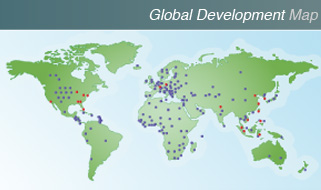-
"Science gives us no answer to the question, how shall we live?"
Posted: December 19th, 2011
"Science gives us no answer to the question, how shall we live?"
- Leo Tolstoy 1898
In a rather stunning piece of news recently, the Secretary of Health and Human Services overruled the FDA to keep (what opponents would call) an abortion pill from becoming available over the counter without a prescription to some women under the age of 18; euphemistically called "Plan B." The Secretary, as delegated by the President, has always had the authority to overrule the FDA, which also only exists as an arm of the Executive branch. But apparently in the entire history of the agency this has never happened. This has brought the "science vs. politics" debate into the public conscience again. Commentators see it as either an isolated incident in an area where there was "soft science" or as a catastrophic incursion of politics into the appropriate realm of science. As a Company developing neural stem cell technology, we are all too familiar with the overlapping of politics and science.
Whether we are talking about the EPA and the science of climate change, or the FDA and science of birth control, administrations have always taken into account political considerations when dealing with science, as well they should. The problems arise (to my way of thinking) when one side or the other decides to attack the science to try to affect policy, rather than simply admit that there are, in their minds, other policy aims to consider. That is where the real damage is done.
The clearest example in recent times was the tobacco companies' decades-long assault on the obvious truth that smoking was (very) bad for you. They founded coalitions and institutes to study the issue and literally paid researchers fortunes to poke holes in what was clearly good science, proving bad things about tobacco use. For a while, they actually created a smoke screen (pun intended) of almost reasonable doubt in the public's mind. Enough money and the megaphone of modern media can do that. Of course that all came crashing down eventually, under the weight of overwhelming evidence combined with common sense. We could all see the effects of smoking all around us.
Something similar is occurring now in the field of "climate change." It's clear that the science is good, and common sense and our own experiences tell us that it is a real problem. But even the term "climate change" (instead of global warming) is the product of massive amounts of money spent by an industry once again trying to stall the inevitable by pretending there is a "real" debate on the science.
In the wake of the Plan B veto we have already heard calls by many to make the FDA "truly independent," like the Feds say, where the President cannot override the "science based" findings of the agency. People making this argument think that they are protecting the integrity of Science. It is a misguided impulse. It implies that the underlying "fact finding" is somehow immune from various societal influences (which it is not); but, more importantly, it advocates a mindset that somehow science is beyond conscience. Just because it is hard to determine what is right or wrong, doesn't mean one should ignore the obligation. That is in the end, what our democracy is about. But let the discussion be about that; do not try to hide it by manufacturing a debate about the science.
No industry has been more affected by this type of debate than the stem sell industry, such as it is. There are serious moral and ethical issues touched on by various technologies. We have not ignored this debate. At Neuralstem we are confident that we are on the "right" side of those issues. We don't need to be defensive about it.
There is, of course, risk in opening up this new political front on the edge of science. The political pressure to use this "newfound" power over the FDA will only grow with time. If history teaches us anything, it is that power expands. Will a President someday overrule the FDA and approve a drug the FDA claims is not safe, for purely political reasons? Is the answer just a matter of money and votes? We may see this tested sooner than we think. Certainly we will see more overtly political incursions into the emerging fields of stem cells, gene therapy, and nanomedicine. The debate has already begun to play out in Europe in the genetically modified "frankenfood" fight.
A bridge has been burned here, make no mistake. But in the end, I think it is unavoidable. The frontiers of medical science are intersecting daily with new and profound ethical questions. Science can also dramatically impact how society works and the distribution of ever scarcer resources to an ever-growing population. Science can tell us much about the way the natural world works but it cannot tell us how to live.
The FDA should remain under the control of the Executive Branch of government. For better or for worse (and it will surely be some of both over time) we cannot pretend that Science is more than it is.






